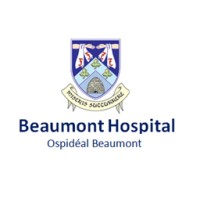Programme: Dublin City
WHO Theme: Communication and Information
Cost: 0 – 500
Status: Ongoing
Description
Though copying medical clinic letters to service users is seen largely as good practice, it is not done routinely in geriatric medical services, yet older patients have many medical conditions and views on how they would like to be managed that are perhaps not taken into account when healthcare professionals (HCPs) correspond with GPs or other HCPs.
Copies of clinic letters to the service user involves additional work for medical staff in formatting letters in suitable, legible language, administrative staff in printing and posting and is an added cost to the healthcare service.
We introduced this practice as standard in our clinics and conducted evaluations which demonstrated its universal approval by older people who showed great appreciation for being kept informed of important information about themselves. All said they felt they should receive copies of all their medical correspondence, not just from the geriatric medicine service. Free text comments showed overwhelming support for the process, in allowing them to self-manage their health, enhance communication with other healthcare professionals and found it a useful document to refer back to when they are trying to process information during short, busy consultations. Older people expressed high levels of satisfaction in receiving copies of medical letters about their health. It supports the ongoing practice and should be adopted widely. We continue to spend the time on this exercise as often high-cost, high intensity interventions in patient care is not apparent to the service user, who are often the last to know their management plan and perceived outcomes.
We feel that this simple intervention should be standard practice across the entire Health Service in Ireland and for older people in particular where communication between the myriad HCPs and service user often barely exist.This is despite the current explosion of technology, with teams often work in silos with IT systems that don’t ‘speak’ to one another, leaving the service user as the only one who knows what is going on; having access to their latest, detailed medical summaries is crucial in keeping information channels open. It empowers the service user to manage their own health.
Aim of Initiative
We aimed to share all medical correspondence routinely sent to GPs regarding a service user’s healthcare including examination findings, investigations, interventions and treatment plans. This is not standard practice in Ireland, even amongst integrated care teams for older people, where communication is a central theme.
Who is it aimed at
Older people who avail of healthcare services
3 Steps critical to success
- Engagement of the full multidisciplinary team consider how they would alter the format of their summary reports for GP letters. Engagement of secretarial staff to understand the reasons for the extra burden of work involved.
- Roll out of the service as routine practice
- Questionnaire to service users to ask for their evaluation of the idea of receiving these letters and views on how to improve.
3 Challenges in Planning / Delivery
- Extra time involved a burden for all staff
- For all staff including administrators, results in some additional calls from service users who may object to certain statements in their letters, which staff initially found difficult but often due to service users learning facts about their health or wellbeing they had not been aware of.
- Convincing others services that this should be an integral part of patient care, spreading the practice.
3 Outcomes / Benefits
- Staff quickly adapted and this is now view this as normal practice in the three services that employed it.
- Overwhelmingly positive feedback from service users from three different settings: 1) an integrated care team for frail older people receiving assessments at home 2) a falls clinic and 3) a Fracture Liaison Service (FLS) clinic. All felt this should be standard practice for all their medical information. Many felt empowered by it, that this simple intervention put them at the centre of a complex hi=tech healthcare system in which their views are often overlooked.
- Decision taken to continue this as standard practice, and plans for other ICT teams to adopt this.
Contact:
Email:

